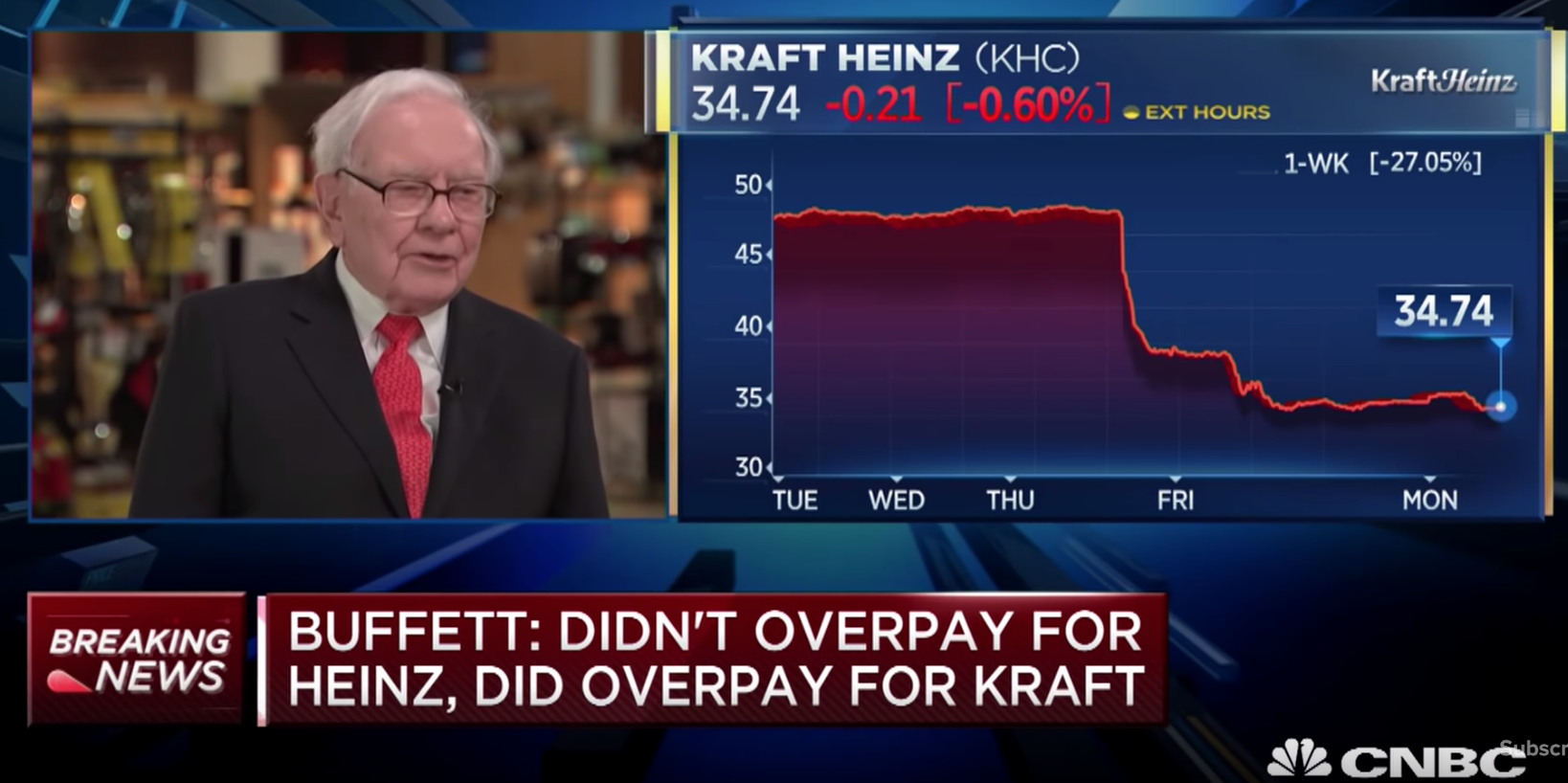Anand and I are long time fans and students of Warren Buffett. The recent news that the legendary investor’s firm Berkshire Hathaway lost $2.7 billion last month on their stake in Kraft-Heinz did not reduce my respect and admiration of his wisdom by even one bit, but of course drove me to ask how I might avoid similar mistakes.
As on many topics, Buffett’s explanation of the loss was simple and easy to understand: they paid too much when they bought their stake. More specifically, he said in this video that they overpaid for the Kraft part of Kraft-Heinz. One converse of my explanation on how to make money in stocks are the only two ways to lose money in stocks:
- Pay more for the stock than the company ends up earning in cash profits, and/or
- Sell the stock after the market reduces its expectations on what the company will earn
In the short-term, Kraft-Heinz stock (NASDAQ: KHC) fell due to a simple revaluation (#2), though Warren said he has no plans to sell or buy more shares. In ratios, KHC fell from a Price/Book ratio of 1.2 last year to 0.6 last week (perhaps not reflecting the recent $15 billion write down that cause the stock to drop), while the market value of the whole business fell from 14x to 11x EBITDA. The story around this is the shift in consumer tastes from packaged to more fresh foods, which did not happen as quickly as the market move.
How can investors avoid a similar mistake? Most investors have the advantage of not being limited to multi-billion dollar deals, and can instead own shares in smaller, less expensive companies that do not need as much to go right to post a good return. Warren Buffett’s own teacher Ben Graham famously described this as investing with a “margin of safety“, which Warren could do more easily in his younger and smaller days, but has since become challenged by both his firm’s enormous size and today’s high valuations of large companies. Warren Buffett’s business partner Charlie Munger said one of their greatest advantages was in starting to buy stocks when everyone else hated them and many companies were trading at irrationally cheap valuations. Higher valuations today makes finding higher yields more challenging and more risky, but even Buffett and Munger don’t find it impossible, and have looked to investments in China partly for that reason.
But one can not over-repeat the lesson of how important it is not to overpay.
Image Source: YouTube

